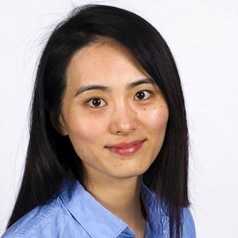
Shasha Lu
Associate Professor in Marketing, Cambridge Judge Business School
Her research interests are in the areas of Artificial empathy, Digital marketing, Visual content/product design and optimization, Marketing innovation in data-rich environments, and Unstructured data analytics in business. Her research has been published in leading journals in marketing, such as Marketing Science and Journal of Marketing Research. Shasha is serving as an ad-hoc reviewer for Marketing Science, Journal of Marketing, Journal of Marketing Research, Customer Needs and Solutions, and California Management Review.
Less ![]()
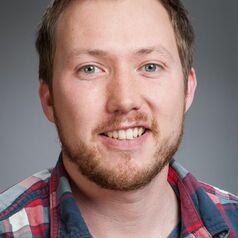
Shaun Eaves
Senior Lecturer in Physical Geography, Te Herenga Waka — Victoria University of Wellington
BSc. Geography (University of Wales, Aberystwyth, UK)
MSc. Quaternary Science (Royal Holloway, UK)
MSc. Geographic Information Systems (University of Leicester, UK)
PhD. Geology (Victoria University of Wellington, New Zealand)
I am a physical geographer who studies field observations, geochronology, and numerical modelling to reconstruct prehistoric climate changes (paleoclimate) recorded in landscapes, with particular specialism in glacier-climate interaction.
Less ![]()
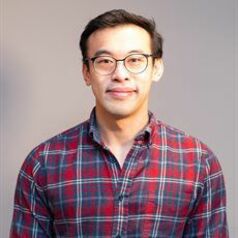
Shaun Thein
Clinical Lecturer in Respiratory Medicine, University of Birmingham
Shaun Thein is a Specialist Registrar in Respiratory Medicine and Clinical Research Fellow in the Institute of Inflammation and Ageing, currently completing a PhD in Neutrophil Function in COVID-19.
Shaun is currently completing clinical training in Respiratory Medicine in the West Midlands. He is finishing a PhD investigating the effect of COVID-19 on neutrophil function.
In addition to research, Shaun also has an interest in teaching, and is aiming to complete a Masters in Medical Education. He currently teaches regularly at Christ Church, Oxford as well as ward based teaching for clinical medical students at the University of Birmingham.
Less ![]()
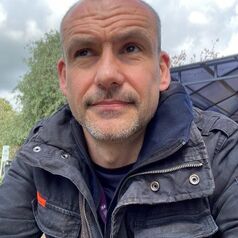
Shaun Thompson
Senior Lecturer in Primary & Childhood Education, Edge Hill University
My name is Dr Shaun Thompson and I am a senior lecturer in primary and childhood education at Edge Hill University. My current teaching and research focuses predominantly around the areas of SEND, inclusion, research methods, Alternative provision, mental health and well-being. I have presented my work both Nationally and Internationally and have a variety of published articles and book chapters.
I am currently leading on an initiative to support and engage schools and school staff within educational research, particularly considering the impact of new educational initiatives within, within the settings they are being implemented.
Prior to working in higher education, I worked in both mainstream primary schools and special education settings and have held the posts of both deputy head teacher and head teacher.
Less ![]()
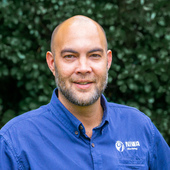
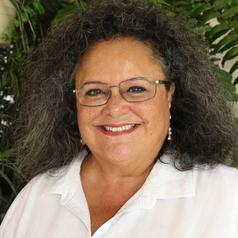
Shauna Bostock-Smith
ANU PhD, Australian National University
Australian National University, Canberra, Doctor of Philosophy, 2021.
Less ![]()
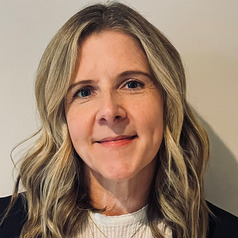
Shauna Hurley
PhD candidate, School of Public Health, Monash University
Shauna Hurley is a science communications researcher, freelance writer and adviser to the Editor in Chief of the Cochrane Collaboration.
Shauna's PhD will explore the role and impact of social media in fostering the global backlash against science, scientific experts and public health authorities throughout the COVID-19 pandemic. It will consider if and how the growing global reach and power of the 'wellness' industry, influencers and popular podcasters can be countered in preparation for the next pandemic.
Less ![]()
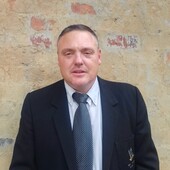

Shawhin Roudbari
Associate Professor of Environmental Design, University of Colorado Boulder
Less ![]()
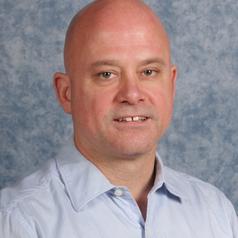
Shawn Kenny
Associate Professor, Department of Civil and Environmental Engineering, Carleton University
Dr. Kenny's research primarily explores the effects of geohazards on the mechanical performance of core infrastructure (e.g., roads, pipelines, rail lines and culverts). Current research activities are also exploring the significance of climate change effects on asset management practices and the supporting framework requirements (e.g., tools, standards, resources) that promote and support effective decision making.
Less ![]()
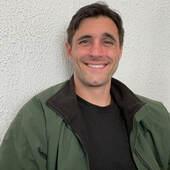
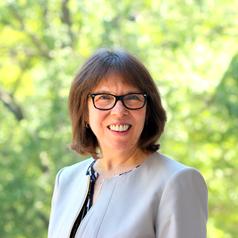
Shawn J. Parry-Giles
Professor of Communication, University of Maryland
Parry-Giles teaches and studies rhetoric and politics in the Department of Communication at the University of Maryland.
Parry-Giles is the author or co-author of six books, including: Memories of Lincoln and the Splintering of American Political Thought (2017) and Hillary Clinton in the News: Gender and Authenticity in American Politics (2014). She also authored The Rhetorical Presidency, Propaganda, and the Cold War, 1945-1955 (named a Choice "Outstanding Academic Title") and is a co-author of Constructing Clinton: Hyperreality and Presidential Image-Making in Postmodern Politics as well as The Prime-Time Presidency: The West Wing and U.S. Nationalism.
Parry-Giles' most recent book is co-authored with David S. Kaufer and Xizhen Cai that is entitled, Hillary Clinton's Career in Speeches: The Promises and Perils of Women's Rhetorical Adaptivity (2023).
Parry-Giles is the Director of the University of Maryland's Rosenker Center for Political Communication and Civic Leadership. She is also co-editor of the journal: Voices of Democracy—a project that was initially funded by the National Endowment for the Humanities and the Recovering Democracy Archives: Speech Recovery Project.
Less ![]()
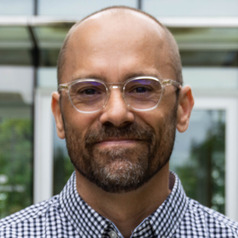
Shawn M. Chartrand
Assistant Professor of Environmental Science, Simon Fraser University
I am a geophysical and environmental scientist. My research focuses on how rivers form and co-evolve with landscapes. I have particular interest in mountain rivers and cold regions of the Arctic. I use field campaigns, physical experiments and theory development to address basic research questions. I apply my research to improve how professional scientists approach and develop river restoration plans, including the removal of dams. I also have two decades of professional experience as a consulting river scientist and geomorphologist, working throughout California and southern Oregon.
Less ![]()

Shawna Mastro Campbell
Assistant Professor Psychology, Bond University
I have a PhD in clinical psychology and am a generally registered psychologist and clinical psychology registrar. I am trained in multiple evidence-based parenting programs. My clinical work is in the area of severe disruptive behaviour in at-risk populations. My research work is in program evaluation and the development of emotion regulation within parent/child relationships.
Less ![]()
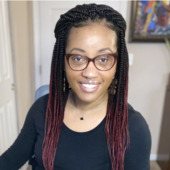
Shawnita Sealy-Jefferson
Associate Professor of Social Epidemiology, The Ohio State University
Less ![]()
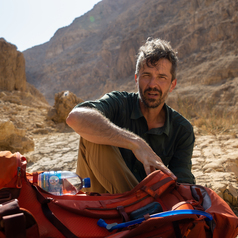
Shay Rabineau
Associate Professor of Israel Studies, Binghamton University, State University of New York
Most of my work deals with history, politics, and environment in Israel/Palestine. At Binghamton University, I teach courses on the history of Israel, the Israeli-Palestinian Conflict, walking and pilgrimage in the Middle East, the environmental history of Israel/Palestine, and the history of Middle East cartography.
All of these things intersect in my research on the history of trails and walking routes. My first book deals with the history and politics of Israel's marked and mapped hiking trail system: how it took shape on the eve of the 1948 war, and how struggles over its growth mirror struggles over Israeli identity and over the boundaries of the country.
My current book project builds on a trek I completed around the Dead Sea in November 2022. The walk, which took me through Jordan, Israel, and the West Bank, was the first circumnavigation of the Dead Sea on foot since 1934, and the first to take place since the rise of modern nation-states in the Middle East.
Less ![]()

Shayne Piasta
Professor of Reading and Literacy, The Ohio State University
Shayne Piasta is Professor of Reading and Literacy in Early and Middle Childhood in the Department of Teaching and Learning at The Ohio State University. She also is a faculty associate for the Crane Center for Early Childhood Research and Policy. Her research focuses on early literacy development and how it is best supported during preschool and elementary years. Her work emphasizes the use of rigorous empirical methods to identify and validate educational programs and practices, such as experimental evaluation of specific curricula and professional development opportunities. She also identifies teacher, classroom, and other factors associated with children’s literacy gains.
Dr. Piasta has received the Presidential Early Career Award for Scientists and Engineers, the Outstanding Pre-Doctoral Fellow Award from the Institute of Education Sciences, and the Dina Feitelson Research Award from the International Reading Association. Her research has been funded by the Institute of Education Sciences, Eunice Kennedy Shriver National Institute of Child Health and Human Development, and National Institute on Deafness and Other Communication Disorders.
Less ![]()

Shayne Vial
Lecturer in Biomechanics, Edith Cowan University
My area of expertise involves the measurement of human movement. This includes extensive experience in the design and development of custom 3-D musculoskeletal models that have been used to assess performance, fatigue, joint function, and injury risk in professional and Olympic-level athletes. My PhD thesis was focused on exploring the influence of fatigue on sprint gait and hamstring injury risk. I previously employed at the Queensland Academy of Sport as a Performance Scientist (Accredited Sports Scientist – Level 2 (ESSA)) where I worked closely with Olympic-level athletes and coaches in Athletics and BMX Freestyle to optimise performance.
Less ![]()

Shazma Bashir
Postdoctoral fellow, University of East London
Dr Shazma Bashir is a pharmacist and is currently working as a postdoctoral fellow at University of East London with expertise in pharmacology, toxicology, biochemistry, and clinical practice.
Less ![]()
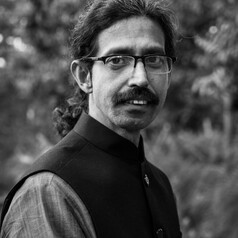
Shehab Uddin
Programme Director, Higher Degree Research, Pathshala South Asian Media Institute
Shehab Uddin is a Brisbane based visual artist, educator, and documentary photographer. He completed his Doctor of Visual Arts at the Queensland College of Art, Griffith University in 2017 and teaches photography at universities and media organisations in Australia, Bangladesh, India, and Nepal.
Uddin’s images are held in public collections in Australia and overseas and have been published regularly in major international news magazines including The New York Times and Der Spiegel. He has held exhibitions around the world and won numerous grants and awards, including Magnum Foundation Emergency Fund, National Geographic, and the World Health Organization (WHO).
Uddin has global experience in street, travel, documentary photography and family archive and has conducted numerous community projects in Australia and overseas.
Uddin’s work is in the collections of Kiyosato Museum of Photographic Arts (Japan), State Library of Queensland (Australia) Dhaka Nagar Jadughar (Dhaka City Museum) and Liberation War Museum (Bangladesh).
Less ![]()
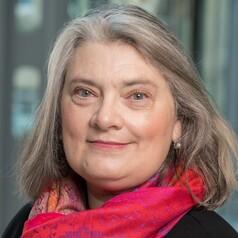
Sheila Hamilton Macdonald
Senior Lecturer, specialising in Probate, Wills and Land, Nottingham Trent University
Also MA (Hons) English Literature and Drama, University of Glasgow
Fellow of the Higher Education Aacademy
Barrister (non-practising)
Less ![]()
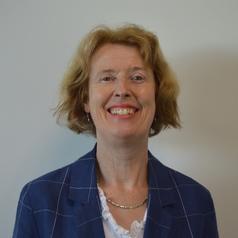
Shelagh K. Mooney
Associate Professor, School of Hospitality & Tourism, Faculty of Culture and Society, Auckland University of Technology
Dr Shelagh Mooney is an Associate Professor and Hospitality Postgraduate Program Leader at Auckland University of Technology, Aotearoa-New Zealand.
She was educated in Dublin to tertiary level and completed her postgraduate studies in New Zealand.
Shelagh’s field work provides empirical detail about neglected areas of tourism employment. Focusing on gendered workplace norms, young people’s employment outcomes, and sustainable workforce issues led Shelagh to establish research collaborations with researchers in Australia and the United Kingdom.
She has published extensively in international journals such as Work, Employment and Society, and presented on gendered organisations and decent work and intersectional aspects of employment in the service sector.
Prior to academia, Shelagh held senior executive roles in organisations such as Intercontinental Hotels and Hilton across Europe and represented academic perspectives on gender in industry forums.
https://orcid.org/0000-0002-0008-8204
Less ![]()
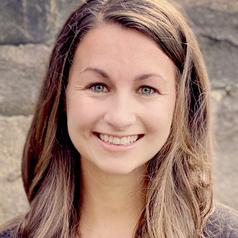
Shelby Carvalho
Doctoral Candidate; Faculty Instructor, Harvard University
I’m a PhD candidate in Government and Political Science at Harvard University studying Comparative Politics and Political Economy. My dissertation project focuses on the political economy of refugee inclusion in low- and middle-income countries.
My academic interests are shaped by more than a decade of professional experience in education and international development. It’s important to me that my research and teaching address real-world challenges. As a result, I straddle academic and policy worlds as a researcher and international development consultant. My areas of expertise include education, forced displacement and migration, gender, international aid and public finance, and labor markets.
At Harvard, I’m an affiliate of the Weatherhead Center for International Affairs, the Institute for Quantitative Social Sciences, the Center for International Development, and the REACH Initiative. Externally, I regularly consult with UNHCR and others as a political economy analyst, am an education expert with the Center for Global Development, a Fulbright recipient, an affiliate of the REAL Centre at Cambridge University, and a visiting scholar with J-PAL Africa.
Less ![]()

Sheldon Fetter
PhD Student, Department of Kinesiology, University of Windsor
Sheldon Fetter (MHK) is a PhD student in the Department of Kinesiology at the University of Windsor. Her research interests lie in exploring how young children are being taught self-regulation and well-being in education systems with an emphasis on nutritional behaviours. Sheldon is interested in community-based research, and is currently researching with a local community partner, an eating disorder prevention and treatment organization. Sheldon is also a sessional instructor in the Department of Kinesiology at the University of Windsor.
Less ![]()
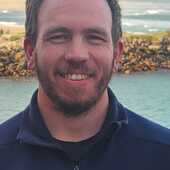
Sheldon Strydom
Senior Lecturer & Head of Department, Department of Geography, Rhodes University
Less ![]()

Shelley Brunt
Senior Lecturer, Music Industry, RMIT University
Shelley is Senior Lecturer and Program Manager of the BA (Music Industry) degree at RMIT University. She holds a PhD in ethnomusicology. Her research on mothers and music careers is published in the 2022 co-authored book 'Popular Music and Parenting' (Routledge) with Liz Giuffre, and discussed in their 2SER podcast 'Music Mothers and Others', which features interviews with Australian music industry professionals. She is the co-editor of 'Perfect Beat: The Asia-Pacific Journal of Research into Contemporary Music and Popular Culture' (Equinox).
Less ![]()
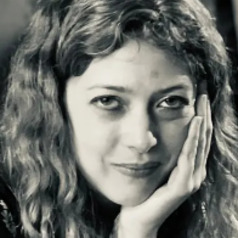
Shelley Galpin
Lecturer in Digital Media and Culture Education, King's College London
I currently teach a range a modules in the field of digital humanities, as well as supervising UG and PG dissertations on a range of subjects. I completed my PhD at the University of York in 2020, and since this time I have taught at numerous UK HE institutions in the fields of Screen Studies, Media and Communications and the Creative Industries. Prior to this, I worked for several years in the FE sector, where I taught English and Media Studies.
Areas of interest
Period drama
Screen adaptations of literature
Screen audiences
Young people and screen texts
Selected publications
Teenage Audiences and British Period Drama (Palgrave Macmillan, forthcoming)
Bridgerton: The Progressive Period Pastiche, Screen Storytelling: The Works of Shonda Rhimes, ed. by Anna Weinstein (forthcoming)
Leaning In or Opting Out? Women’s Choices in Little Women and Mary Queen of Scots, Feminist Media Studies (September 2021)
Harry Potter and the Hidden Heritage Film: Genre Hybridity and the Power of the Past in the Harry Potter Film Cycle, The Journal of British Cinema and Television, Vol. 13, issue 3, 2016.
Auteurs and Authenticity: Adapting the Brontës in the Twenty-First Century, The Journal of British Cinema and Television, Vol. 11, issue 1, 2014.
Less ![]()
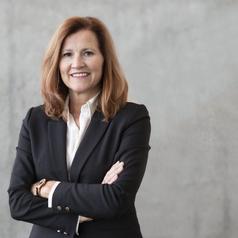
Shelley Legin
Doctoral Candidate - School of Business and Associate Faculty, Royal Roads University
I'm a doctoral candidate in the DBA (Doctorate of Business Administration) program at Royal Roads University and have developed curriculum based on my research to teach in the Graduate Certificate Program on Financing Social Impact. Previously (before retirement from 40 years of full-time work) I was Chief Financial Officer and Vice President Administration at Vancouver Island University. I am a Chartered Professional Accountant (CPA), registered in BC.
My doctoral program supervisor is Dr. Heather Hachigian, PhD, Oxford and Assistant Professor at Royal Roads University.
Less ![]()
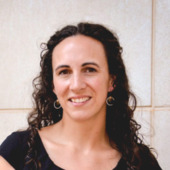

Shelley Wilkinson
Associate Professor and Senior Principal Research Fellow, School of Pharmacy, The University of Queensland
Shelley is passionate about helping women and couples achieve their goal of starting a family through optimising their health to improve their fertility, their pregnancy, and beyond. She achieves this through tailoring knowledge from the scientific research to individual’s situations and preferences.
Shelley has worked as a dietitian since 1995. She specialises in the area of women’s health, including lifestyle change to improve fertility, nutrition for the healthiest pregnancy possible, and practical advice for new mums.
She was the Senior Research Dietitian at the Mater Mothers Hospital for 12 years and is now a service development and redesign expert in the Mater Mothers’ Department of Obstetric Medicine. She also works part time an Associate Professor in the UQ School of Pharmacy as a Senior Principal Research Fellow on the RECARD project and is the Director and Principal Dietitian at Lifestyle Maternity.
Shelley's main research interests include:
Implementation Science and Translating Research into Practice
Health service redesign through co-creation
Nutrition and maternal health ('The first 1000 days')
Digital technologies and platforms to facilitate behaviour change
Shelley is an Associate Editor for Dietitians Australia’s national journal, Nutrition and Dietetics. In 2010, Shelley received Advanced Accredited Practising Dietitian status as recognition of her professional leadership and expertise. The high quality of her research has been recognised with six awards in the field of Evidence-Based Practice and Clinical Research.
With 38 peer reviewed publications in the past 5 years, she has an h-index of 23 and her Field-Weighted Citation Impact score (1.48) is above average for her discipline, particularly in the areas of Gestational Diabetes (FWCI 2.89), Digital Health (FWCI 3.57), Intestinal flora (FWCI 4.13), and Social Media (FWCI 8.94).
Less ![]()

Sheneka Williams
Professor and Department Chair of Educational Administration, Michigan State University
Less ![]()
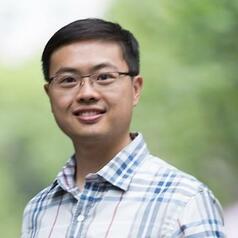
Shengjie Lai
Principal Research Fellow in Spatial Epidemiology of Infectious Diseases, School of Geography and Environmental Science, University of Southampton
Dr Lai is a Principal Research Fellow in Spatial Epidemiology of Infectious Diseases at the School of Geography and Environmental Science, University of Southampton. He is currently leading the Dynamics and Mobility (DM)/Spatial Epidemiology and Public Health (SEPH) thematic group within WorldPop (https://www.worldpop.org/). His research interests are investigating the spatiotemporal patterns and interactions between seasonal population movements, environmental changes and infectious disease transmission dynamics by using multidisciplinary approaches, e.g. GIS and epidemiology, and novel data sources, e.g. mobile phone and Internet check-in data, to provide an improved evidence-base for development and disease control decision-making.
Less ![]()
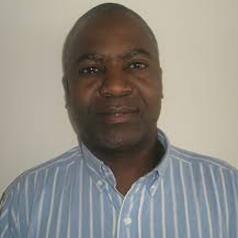
Shepherd Dhliwayo
Professor, Entrepreneurship , University of Johannesburg
Shepherd Dhliwayo is a professor at the University of Johannesburg. He researches in the field of strategy, entrepreneurship, and small business development.
Less ![]()

Sheri Lambert
Professor of Marketing, Temple University
Prof Sheri Lambert is a faculty member in Marketing and Supply Chain Management at the Fox School of Business of the Temple University where she teaches Marketing Strategy, Digital Innovation in Marketing and Consumer Buyer Behavior at the undergraduate, graduate, and executive levels. Repeatedly recognized by her students for outstanding instruction, Sheri is a recipient of several awards for excellence in teaching. She is founder of the Fox MSMR Industry Advisory Board (IAB) a partnership among business leaders, faculty and students that generates knowledge about the market research industry through educational programs, global forums and research. Sheri also is one of the faculty advisors to Temple University's American Marketing Association (TU AMA) collegiate chapter.
In addition, Sheri is Managing Director of the Fox Center for Executive Education partners with organizations to strengthen their management, executive and board-level leadership teams.
Prior to joining the Fox School, she served as Chief Marketing Officer at Big Sofa Technologies and a member of its Global PLC Board. With her executive management and high-level experience, including years of market research consulting engagements in both consumer and B2B sectors across a wide range of industries and methodologies, her areas of expertise are strategic planning, organization, development and management. Sheri has held Senior Leadership positions within some of the world’s largest marketing research consulting firms. Including, Ipsos and Kantar Group. At Ipsos, she was the Global Head and Executive Vice President of the Travel & Leisure Sector and Global Loyalty Practic. At TNS she served as Managing Director of its North America Transportation, Travel & Hospitality Sector and was President of TNS NFO Plog Research Company.
Sheri received her Master of Business Administration in Marketing from the Stephen M. Ross School of Business at the University of Michigan, and a Bachelor of Science in Industrial Engineering from Purdue University.
Less ![]()
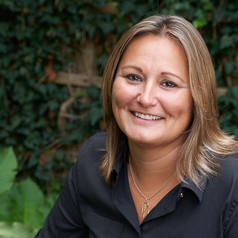
Sheri Longboat
Associate Professor, Rural Planning and Development, University of Guelph
Dr. Sheri Longboat (Mohawk) is a member of the Six Nations of the Grand River and Associate Professor in the School of Environmental Design and Rural Development at the University of Guelph. A geographer, educator, and community-engaged scholar with 25 years of experience working with and within First Nations communities in Canada, her multidisciplinary research focuses on the interface between Indigenous and Western institutions (knowledge systems, policy, and governance) to address issues of water insecurity, the relationship with natural resources, as well as other environmental challenges and opportunities.
Less ![]()
- Market Data























